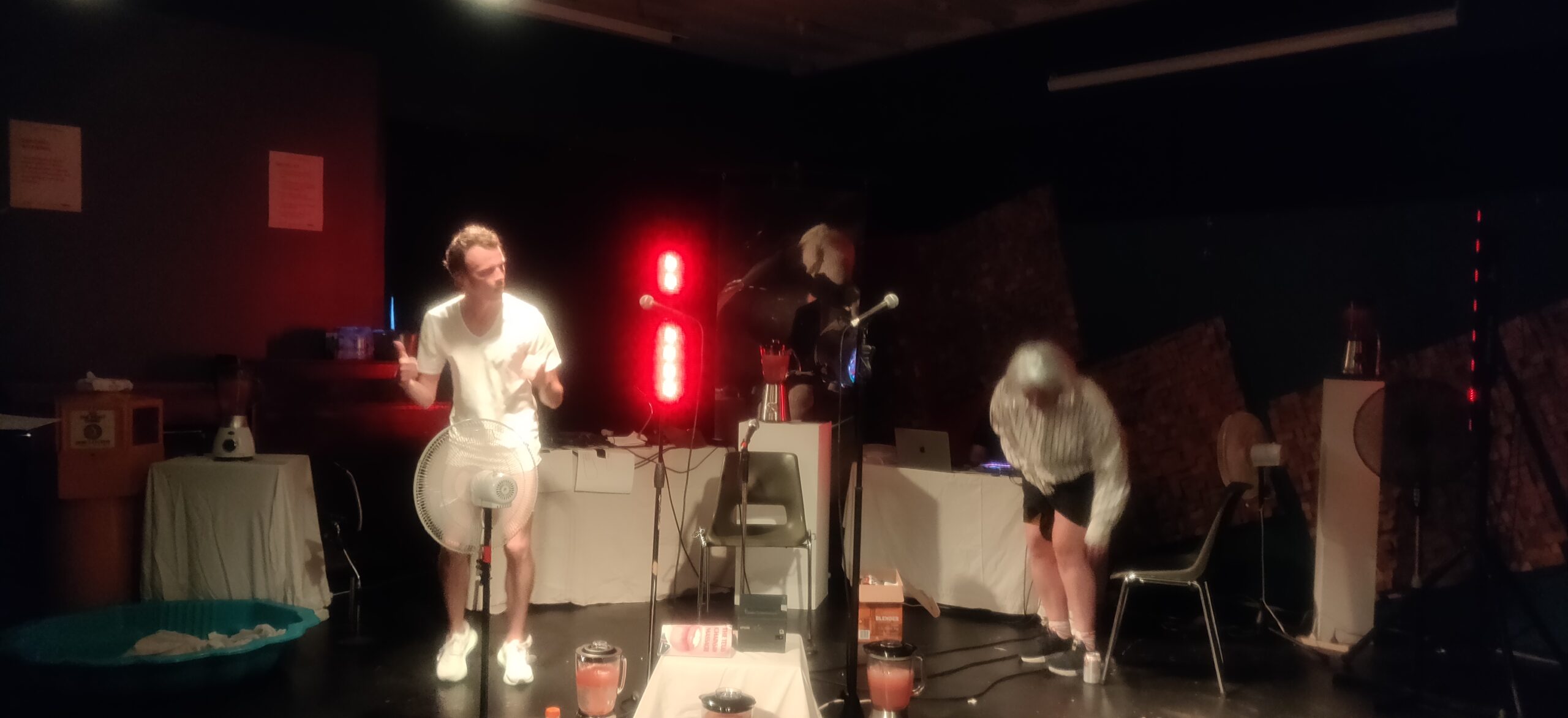Texas Chainsaw Massacre, the brainchild of Josiah Morgan, Bea Gladding and Shaun McTague, was a slaughterhouse of discomfort and distress. A durational art piece that promised to “put the past in a blender and see what comes out the other side,” Texas Chainsaw Massacre was an exercise in organised chaos, which was both vocalised and embodied, all the while revealing far too little while revealing far too much.
Whenever I attend works like this I am left thinking about Aotearoa’s relationship to performance art, and how we as a collective struggle to access these often heady provocations and to situate them within the cultural milieu we are accustomed to. Perhaps that is why Texas Chainsaw Massacre was so viscerally confronting.
As a viewer, it was really difficult to watch someone run for a seven minute stretch, let alone naked. Perhaps it is fitting then that my response to this work has not been intellectual at all, but rather embodied, feeling the flailing and desperate treadmill of despair in my own body, particularly as the heat of the confined performance space escalated. All the while, Morgan erupted into impassioned ramblings as prompts were printed out at random intervals, becoming a sort of punctuation to this otherwise seemingly unstructured world.
“Sometimes we try to intellectualise and rationalise that which our brains can’t really comprehend.”
The horror soundscapes created by Gladding and McTague only added to the claustrophobia. At one point, Gladding repeated “Everything means something, I guess,” which became a haunting mantra, dissected and reassembled, simultaneously disorienting and comforting. I found my eye darting around the room, looking for anything and everything that could give meaning to the suffocating cloud of uneasiness that filled the room, but alas I could yield no definitive answers.
Upon closer inspection, I came to think that that was the point—that while everything means something, everything also means nothing. Sometimes we try to intellectualise and rationalise that which our brains can’t really comprehend. We do anything we can to categorise and recognise patterns in the seemingly random because we refuse to accept that anything is truly accidental. Yet in switching my brain off from the work, in an effort to suspend my need for logic, I grew aware of the quickening pace of my heartbeat, the tension in my chest, my clenched jaw, the sweat collecting in my armpits. So yes, Texas Chainsaw Massacre was a slaughterhouse of discomfort and distress—exactly as intended.
Featured photo by Matt Laing courtesy of Josiah Morgan.



